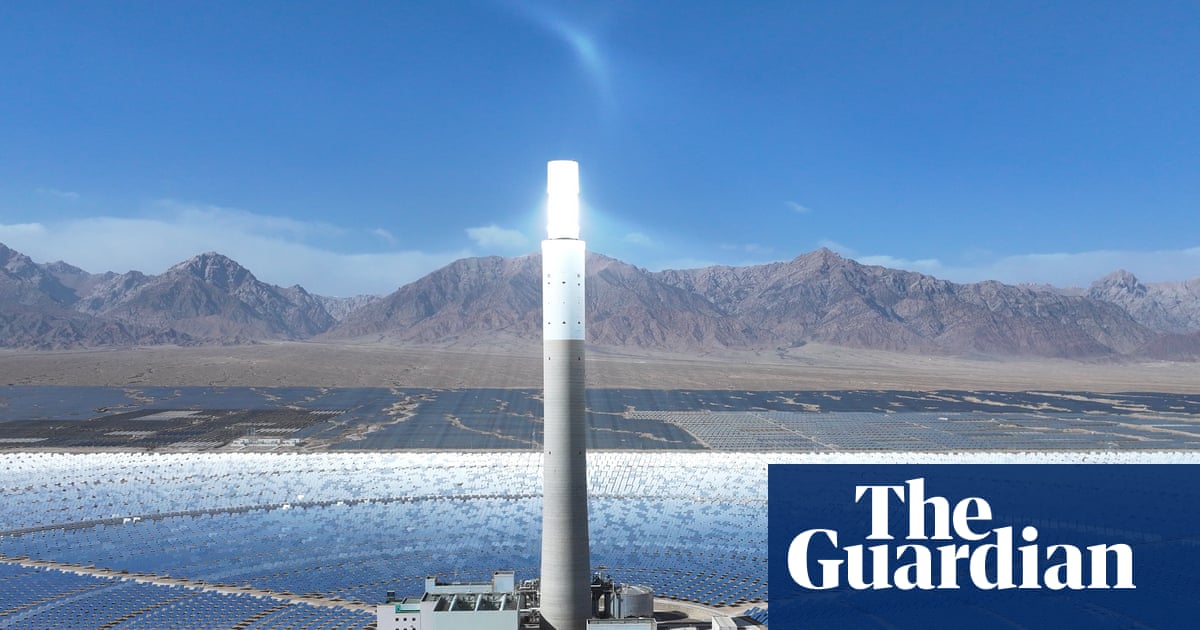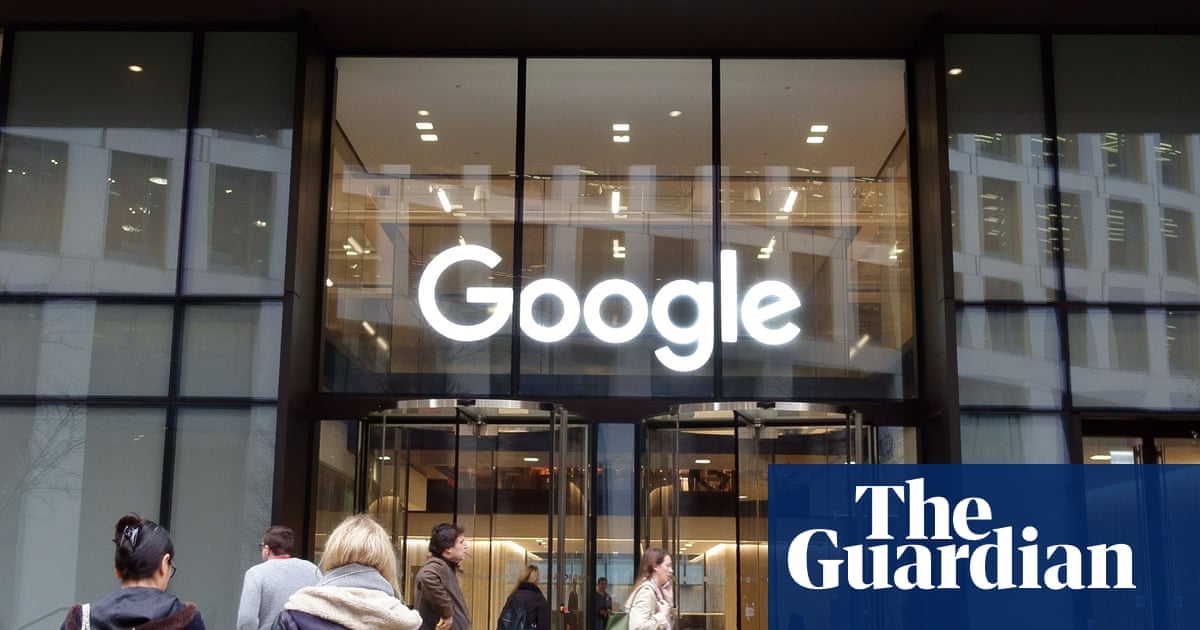#datacentres
#datacentres
[ follow ]
fromTheregister
1 week agoUK govt caves on datacenter approval after legal challenge
The British government has conceded it should not have approved a campus near London's M25 orbital motorway and that the decision should be quashed, following a legal challenge by campaign group Foxglove. The non-profit filed its challenge last year after the Ministry of Housing, Communities & Local Government overturned Buckinghamshire Council's rejection of the Woodlands Park site near Iver. The local authority had blocked the project on grounds it would significantly alter the area's character and appearance.
UK politics
fromwww.theguardian.com
2 months agoThirsty work: how the rise of massive datacentres strains Australia's drinking water supply
As Australia rides the AI boom with dozens of new investments in datacentres in Sydney and Melbourne, experts are warning about the impact these massive projects will have on already strained water resources. Water demand to service datacentres in Sydney alone is forecast to be larger than the volume of Canberra's total drinking water within the next decade. In Melbourne the Victorian government has announced a $5.5m investment to become Australia's datacentre capital,
Environment
fromwww.theguardian.com
2 months agoIt's hell for us here': Mumbai families suffer as datacentres keep the city hooked on coal
Each day, Kiran Kasbe drives a rickshaw taxi through his home neighbourhood of Mahul on Mumbai's eastern seafront, down streets lined with stalls selling tomatoes, bottle gourds and auberginesand, frequently, through thick smog. Earlier this year, doctors found three tumours in his 54-year-old mother's brain. It's not clear exactly what caused her cancer. But people who live near coal plants are much more likely to develop the illness, studies show, and the residents of Mahul live a few hundred metres down the road from one.
Environment
Artificial intelligence
fromComputerWeekly.com
2 months agoDatacentre energy demands set to soar by 2030 as AI growth accelerates, predicts Gartner | Computer Weekly
Datacentre electricity demand will surge, driven by AI workloads, doubling by 2030 and reaching about 980 TWh with AI-optimized servers consuming an increasing share.
Environment
fromComputerWeekly.com
3 months agoIT Sustainability Think Tank: Distinguishing the green washers from the green winners | Computer Weekly
A cross-sector standardised decarbonisation framework and accurate carbon accounting are needed to prevent greenwashing, improve transparency, and accelerate industrial decarbonisation.
Environment
fromComputerWeekly.com
3 months agoGovernment urged to scrutinise datacentre developers' environmental claims | Computer Weekly
Planned datacentre construction could significantly raise UK electricity demand and carbon emissions, potentially negating emissions savings from electric vehicle adoption.
Environment
fromComputerWeekly.com
4 months agoGreen energy microgrids hailed as cost-effective answer to UK's datacentre energy supply woes | Computer Weekly
Expanding renewable microgrids offers a faster, cheaper way to meet UK datacentre energy demand compared with building nuclear small modular reactors (SMRs).
UK news
fromComputerWeekly.com
4 months agoFT 250 executives call for UK grid upgrades to support AI datacentre expansion plans | Computer Weekly
Upgrading the UK electricity grid is essential to supply reliable high-capacity power for datacentres and enable AI, cloud computing, and high-growth industries.
fromwww.theguardian.com
4 months agoLabour cosies up to US tech firms with little thought of downsides | Heather Stewart
Jensen Huang, the boss of the chipmaker Nvidia, had some advice for UK ministers last week as they signed a multibillion-pound tech deal with the US: burn more gas. I've every confidence that the UK will realise that it takes energy to grow new industries, he said. Sustainable power like nuclear and wind and of course all of that solar is all going to contribute. But I'm also hoping that gas turbines can also contribute.
UK politics
UK politics
fromwww.theguardian.com
4 months agoThe UK's 31bn tech deal with the US might sound great but the government has to answer these questions | Matt Davies
The UK pursued a US tech prosperity deal to attract US investment for AI infrastructure but faces risks to communities, resources and local benefits.
fromwww.theguardian.com
4 months agoWhat is new in UK-US tech deal and what will it mean for British economy?
The $30bn (22bn) sets out the company's UK budget over the next four years and refers not just to artificial intelligence infrastructure but also ongoing operations across the UK. Microsoft said the number included $15bn in capital expenditure such as on equipment, land and buildings for AI and cloud services, areas where datacentres are key components. The other half will go on day-to-day operations such as research, sales and product development.
Artificial intelligence
UK news
fromComputerWeekly.com
4 months agoStartup Carbon3.ai sets sights on building UK-wide sovereign 'national grid for AI' | Computer Weekly
Carbon3.ai plans a £1bn, UK-owned, off-grid renewable-powered, sovereign AI datacentre network across 30+ sites offering 100,000+ GPUs to reduce carbon and cost.
fromBusiness Matters
4 months agoGoogle pledges 5bn UK investment and opens Hertfordshire datacentre amid Trump visit
Google has unveiled plans to invest an additional £5 billion in the UK over the next two years, in a move it says will help expand the country's artificial intelligence economy, create thousands of jobs and accelerate breakthroughs in science and technology. The announcement coincides with the state visit of US President Donald Trump, during which major technology and energy deals are expected to dominate the agenda. The investment will include significant spending on Google's infrastructure, research and engineering teams, as well as support for Google DeepMind, its London-based AI arm. The company said the expansion would generate 8,250 " new AI-driven jobs " in Britain.
Artificial intelligence
fromComputerWeekly.com
4 months agoTechUK report on datacentre water usage habits criticised | Computer Weekly
A TechUK report that claimed datacentres in England use less water than previously thought has been accused of containing "methodological flaws" designed to appease tech lobbying in the UK. Foxglove, a non-profit organisation that campaigns for fairness in technology and the protection of local communities, described the study as "dodgy and misleading", arguing that its conclusions are not supported by the evidence.
Environment
fromComputerWeekly.com
4 months agoRising network outages are proving costly to businesses | Computer Weekly
As the backbone of artificial intelligence (AI), machine learning, cloud computing and the internet of things (IoT), datacentres are at the centre of modern business infrastructure, but as businesses become more dispersed, the infrastructure surrounding datacentres has become more critical and complex, with network outages no longer isolated events and their cost to businesses never higher, a study from Opengear has found.
Information security
Environment
fromComputerWeekly.com
4 months agoWater efficiency of English datacentres scrutinised in TechUK report | Computer Weekly
Modern commercial datacentres in England use much less potable water than assumed due to waterless and hybrid cooling technologies, improving water efficiency amid AI-driven expansion.
Russo-Ukrainian War
fromComputerWeekly.com
7 months agoIn conflict: Putting Russia's datacentre market under the microscope | Computer Weekly
The Russian datacentre sector is facing a severe shortage of capacity due to the exodus of foreign tech companies and increased demand.
Building new datacentres in Russia has become significantly more expensive since 2022.
London startup
fromComputerWeekly.com
8 months agoNational Grid starts building large-scale substation to support growth of West London datacentres | Computer Weekly
National Grid is constructing its largest electrical substation in Buckinghamshire to meet rising demand from datacentres in West London.
Tech industry
fromwww.theguardian.com
8 months agoDraining cities dry: the giant tech companies queueing up to build datacentres in drought-hit Latin America
Brazil's Caucaia will host a large datacentre for TikTok, highlighting economic growth amidst environmental concerns.
Despite its potential for job creation and tech advancement, Caucaia faces significant environmental challenges.
[ Load more ]



